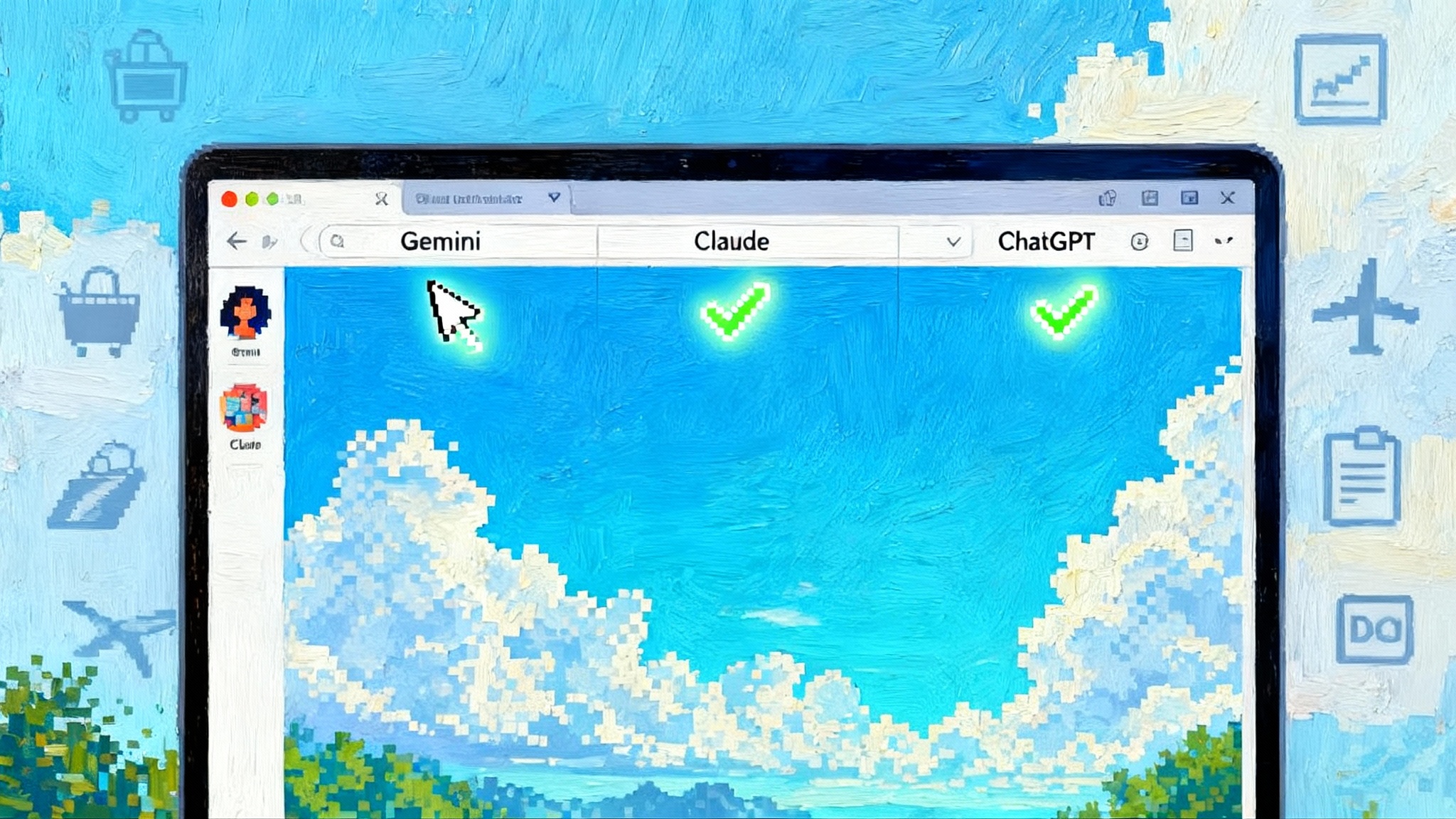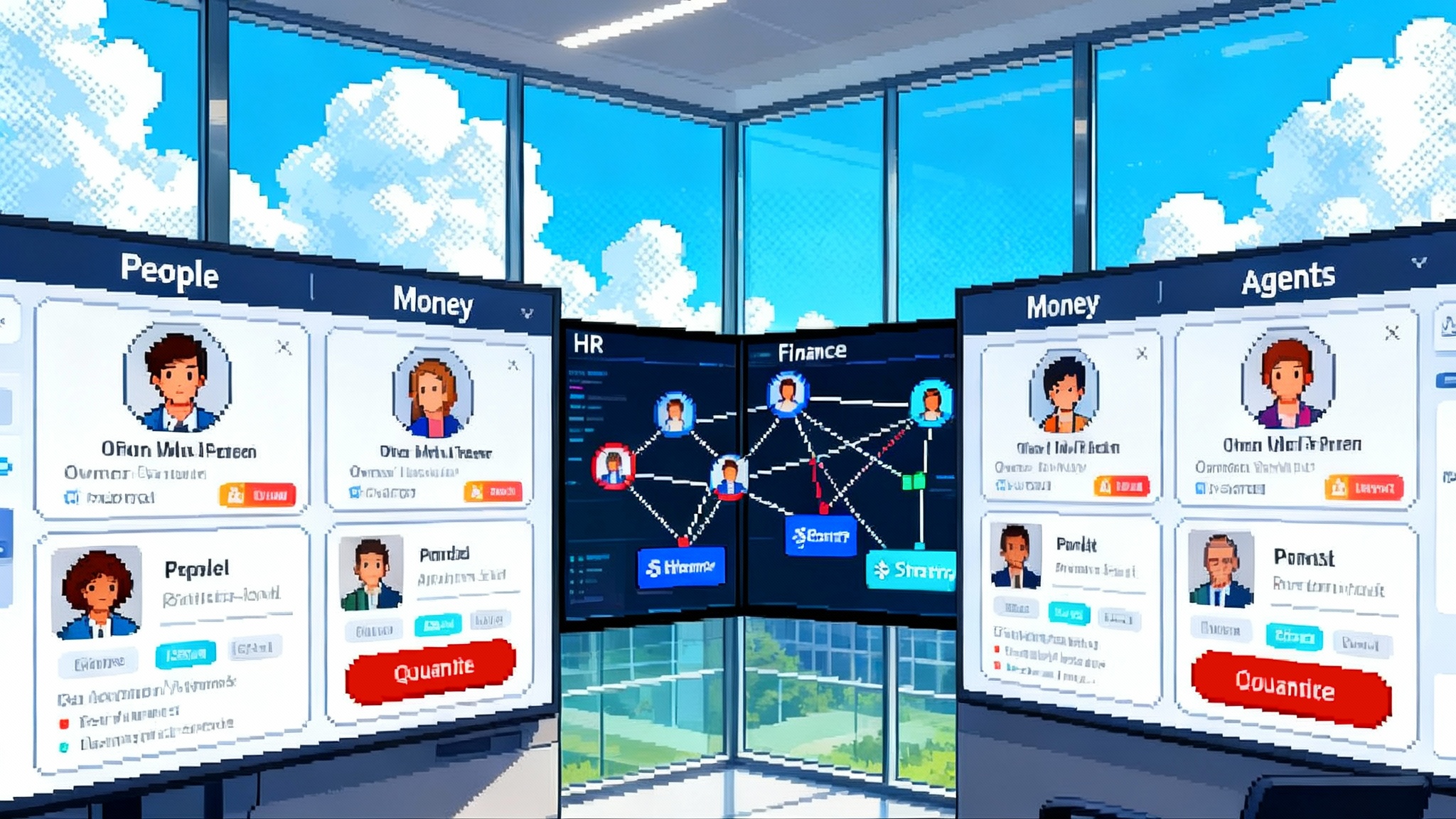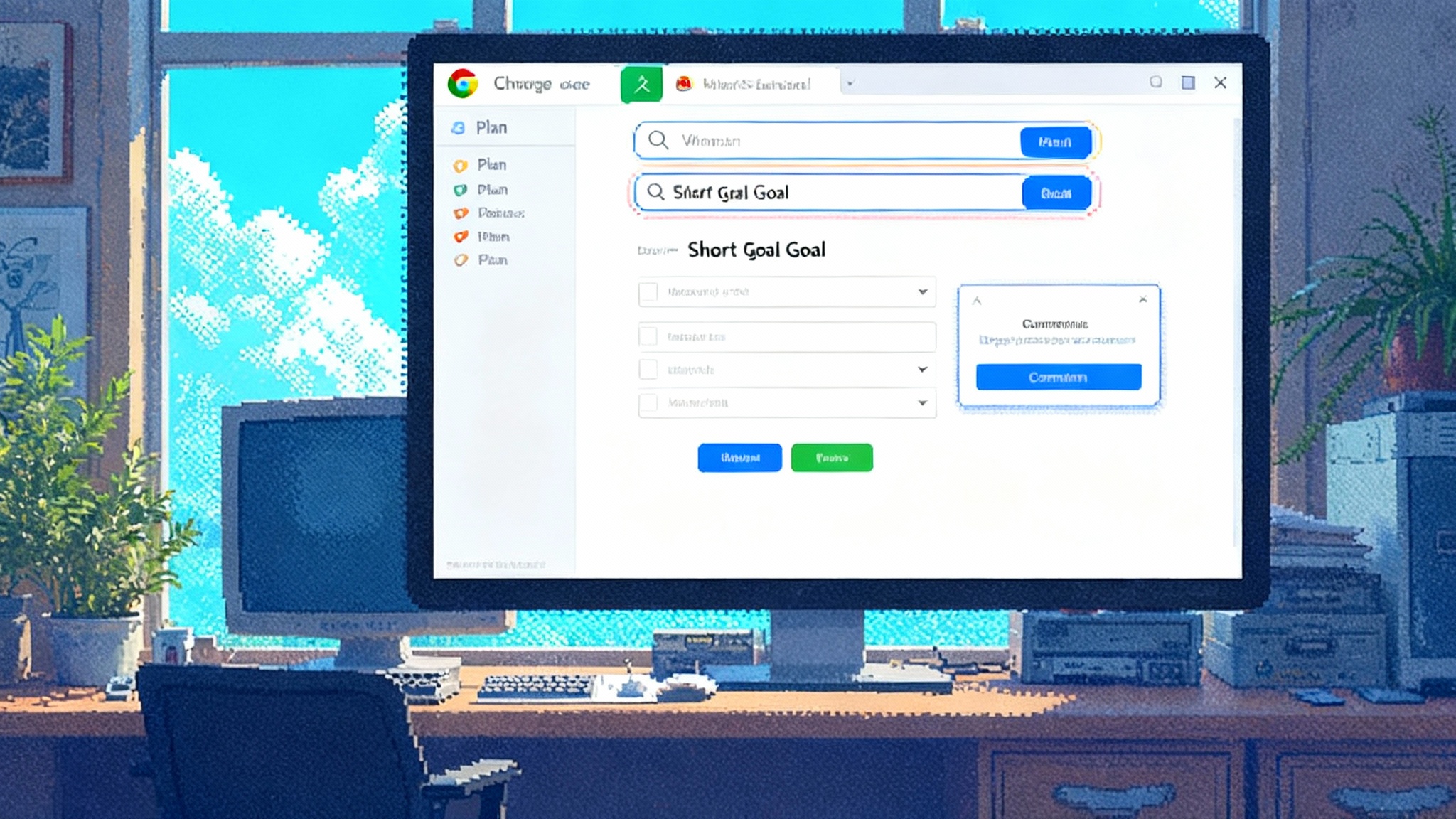Your Browser Just Became an Agent: Chrome’s Gemini Gambit
Google just put Gemini inside Chrome for U.S. desktop users, shifting the browser from passive window to active helper that can read tabs, summarize, and assist tasks. With Anthropic’s Claude-in-Chrome preview and OpenAI’s ChatGPT Agent, the agent wars now move into the address bar.

The browser is becoming the agent
On September 18, 2025, Google began rolling out Gemini inside Chrome to U.S. desktop users. Google frames this as a reimagining of the browser: an assistant that understands what is on your screen, summarizes across tabs, and helps you act. If you use Chrome in English on Mac or Windows, you will see a dedicated Gemini entry point and an experimental AI Mode in the omnibox that turns searches into contextual prompts. Google’s description is clear: Chrome is shifting from passive window to active helper. See Google’s announcement in Chrome reimagined with AI. For more context on the platform shift, see our primer on the Gemini in Chrome agent platform.
This change lands in a market already heating up. Anthropic is piloting Claude for Chrome as a research preview with a small group of Max subscribers. The extension runs as a sidebar that can read pages, click buttons, and complete limited tasks under explicit permissions. OpenAI has folded its Operator preview into a full ChatGPT Agent that uses a sandboxed visual browser, connectors like Gmail and GitHub, and a terminal to plan, research, and act. OpenAI outlines the approach in the ChatGPT agent announcement.
Put simply: the AI agent is moving into the browser itself. That reshapes distribution, data access, and monetization across the stack. For the business model implications, see Chrome plus Gemini economics.
Distribution is destiny
-
Chrome plus Gemini. Chrome remains the default portal for a large share of desktop browsing in the U.S. Placing Gemini in the chrome of Chrome gives Google distribution at the moment of intent. AI Mode in the omnibox is not just a UI flourish. It intercepts the earliest stage of a query and can answer before a traditional results page loads.
-
Claude in Chrome. Anthropic’s research preview is small today, but it tests an emergent pattern. A sidecar that can see the page becomes a persistent companion that people can summon without changing tabs or apps. If the extension graduates to general availability, the right rail of the browser becomes highly contested real estate.
-
ChatGPT Agent. OpenAI’s agent runs its own virtual browser and can be used inside ChatGPT on web and desktop. It is not a Chrome integration, but it does not need to be if users treat ChatGPT as the place where tasks start. That is a different distribution strategy. OpenAI is betting on gravity from the assistant, not the default browser.
The net effect is that intent capture moves closer to the viewport and further from classic pages of links. Whoever owns the first reply at the top of your screen shapes the rest of the journey.
Data access is the new moat
-
Context from the page. All three approaches seek grounded context. Chrome plus Gemini can read active tabs, summarize, and propose next steps. Claude for Chrome reads the DOM, can click, and in some cases fill fields with permission. ChatGPT Agent uses a visual browser that takes screenshots and performs actions like a user would, then mixes that with connectors.
-
Identity and SSO. In enterprise settings, identity gates what an agent can do. Google will rely on Workspace controls tied to the account logged into Chrome. ChatGPT Agent leans on workspace settings that govern connectors, retention, and data residency. Claude’s preview uses site-level permissions, and it blocks high risk categories by default. Teams need clear playbooks for when an agent may act behind a login, how cookies persist, and how to revoke access.
-
Personalization boundaries. Gemini’s personalization increasingly connects with Google apps when users opt in, raising the ceiling on usefulness and the stakes on data governance. OpenAI’s connectors pull targeted slices of data into scope for a task. Anthropic’s pilot is conservative by design, surfacing explicit confirmation dialogs for actions. The edge will come from connections that are powerful, visible, and reversible.
Monetization realignment has begun
-
Search and SEO. If AI Mode in the omnibox answers more queries before a results page loads, traditional SEO loses surface area. Expect a shift from ranking for blue links to optimizing for agent answers. That means structured data, clean product specs, and clear actions that an agent can confidently execute. We are entering AEO, agent experience optimization. See how this plays out in agentic browsing mainstream at last.
-
Affiliates and ads. Affiliate arbitrage was built on comparison pages and coupon overlays. Agents will do their own comparison shopping and often complete checkout flows. Economics will migrate from last click to last confirmation. Brands will test direct relationships with agent platforms, merchant feeds that agents prefer, and server side conversion signals that can be verified without third party pixels.
-
Shopping and travel flows. Agents will read product pages, pull specs, check compatibility, and build a short list without bouncing across 20 tabs. For travel, they will coordinate dates, loyalty numbers, and budget caps, then propose a plan. Aggregators must expose clean APIs, structured itineraries, and refund rules that an agent can parse. The reward shifts to merchants who provide reliable agent readable contracts.
-
Enterprise data and reporting. The agent that sits inside your browser can collect links, scrape dashboard metrics with permission, and generate a memo or slide. Monetization is not ads. It is seat expansion, usage based pricing, and a premium on auditability.
Journeys: what is real today vs hype
Below are four common tasks as they work right now across Chrome plus Gemini, Claude in Chrome, and ChatGPT Agent. Details will evolve, but the patterns are visible.
1) Research a complex topic and compile a brief
-
Chrome plus Gemini. Open six articles and a couple PDFs. Ask Gemini in the sidebar to summarize what is in your tabs and to extract the three points of consensus and two points of contention. It cites tab sources, drafts a brief, and offers follow up queries. It does not yet orchestrate multi hour deep dives in the background, but it is already useful as an on screen synthesizer.
-
Claude in Chrome. Open tabs on the same topic, then ask Claude to read, highlight disputed claims, and collect quotes. The extension can traverse links with permission and copy excerpts into an artifact in the sidebar. Because it sees the DOM, it is good at scraping tables or lists. In the preview, it pauses before risky actions and is cautious about auto navigation to unknown sites.
-
ChatGPT Agent. Start the task in ChatGPT, choose agent mode, and ask it to research the public web and create a two page brief with attributed sources. The agent opens its visual browser, visits pages, and pastes snippets with links. If you add “export to Google Docs” and have a connector configured, it creates the document and shares it back. It can run for 10 to 20 minutes and then reports back with sources.
Verdict today: Gemini is fastest for on screen synthesis of what you are already viewing. Claude is strong for structured extraction from the current page set. ChatGPT Agent is strongest for unattended deep dives that roam beyond your current tabs.
2) Book a three night work trip with constraints
-
Chrome plus Gemini. Ask for flights that land before noon, a hotel within walking distance of the venue, and a budget cap. Gemini proposes options with links. Because it lives in the browser, you can click through and complete checkout while it watches for missing steps. Early agentic features suggest but typically do not push the final booking button for you.
-
Claude in Chrome. Tell Claude the dates, airline status, and hotel preferences. It searches within your open tabs, then with permission follows links, picks room types, and fills forms. When it reaches a login wall, the extension pauses and hands control back for authentication. In the pilot, it is conservative with purchases and shows a confirmation before any irreversible step.
-
ChatGPT Agent. Give the constraints, then set boundaries like “do not purchase, stop at the final review page.” The agent opens airline and hotel sites, filters for your constraints, and shares screenshots at each step. If you approve, you take over to enter payment and complete. If you provide a corporate travel portal and budget policy, it adheres to those rules.
Verdict today: Claude is the most natural for in tab form filling with supervision. ChatGPT Agent is best at end to end orchestration with explicit checkpoints. Gemini is useful as a guide and checker while you drive the booking tabs.
3) Buy a 27 inch 4K monitor for under $350
-
Chrome plus Gemini. Open a few retailer pages. Ask Gemini to reconcile specs and find ones with USB C power delivery and height adjustment. It assembles a short list from what is on screen and proposes pros and cons. If you ask it to factor in your laptop’s GPU output or desk space, it adjusts the shortlist.
-
Claude in Chrome. Start on a price comparison page. Ask Claude to filter by panel type, HDR claims that are not just marketing, and return policy. It clicks filters, expands spec tables, and builds a comparison grid in the sidebar. You can ask it to create a watch list and it pins links for you to revisit.
-
ChatGPT Agent. Ask it to find three models that meet your constraints and check price history. It browses across retailers and review sites, pastes screenshots and links, and then drafts a one page comparison with a recommendation. You can say “start checkout on the best option but stop before payment,” and it does so.
Verdict today: Gemini accelerates in tab comparisons. Claude is good at systematic filter work. ChatGPT Agent is best for a single consolidated recommendation with a repeatable method.
4) Weekly metrics report for a small team
-
Chrome plus Gemini. With dashboards open, ask Gemini to read the charts and write a summary with callouts on what moved, what is noise, and two suggested experiments. It lifts numbers from visible widgets and drafts a paragraph you can paste into email or Docs. It is limited by whatever is on screen.
-
Claude in Chrome. Navigate to your analytics page and ask Claude to export a CSV, then paste key metrics into an on page table it creates in the sidebar artifact. It helps format a clean figure table and bullet points. It is a strong helper for admin work done inside web apps you already use.
-
ChatGPT Agent. Ask it to compile the weekly report, then connect to your email and doc repositories via connectors. It collects last week’s plan, pulls in this week’s figures from sources you specify, and generates the report. You can schedule this task to recur every Monday and it re runs the workflow.
Verdict today: Gemini is the fastest eyes on the page summarizer. Claude is best for repetitive web admin steps. ChatGPT Agent is closest to a recurring analyst workflow.
Who gains and who loses
-
Browsers and assistant platforms. Chrome benefits most in the near term. Putting an assistant directly in the browser captures intent early and strengthens Google’s grip on everyday tasks. OpenAI gains by turning ChatGPT into a workhorse people trust for unattended tasks. Anthropic gains a credible path to relevance inside mainstream browsing if it can graduate its preview safely.
-
Publishers. Expect fewer raw visits and more agent mediated citations. Winners will publish structured, verifiable facts, expose clean copy without layout traps, and offer machine readable licenses and attribution. Losers will be pages that rely on pagination, intrusive ads, or obfuscated specs.
-
Retailers and travel vendors. Those who surface reliable specs, inventory, and refund terms in structured form will see more direct agent traffic. Merchants that hide fees, mislabel specs, or rely on dark patterns will be screened out by agent policies.
-
Adtech and affiliates. Tracking built for page views is less relevant when agents do the legwork. Expect growth in server side conversion APIs, agent safe offer feeds, and new bidding against agent intent signals. Affiliate networks will need verified completion webhooks and payouts tied to the agent attributed deciding touch.
What builders should prioritize in the next 6 to 12 months
- Ship structured data everywhere. Adopt and extend schema for specs, availability, shipping, refund rules, loyalty accrual, and CO2 estimates.
- Provide action endpoints. Build simple, idempotent web actions for add to cart, hold item, reserve seat, and cancel. Ensure obvious confirmation states that agents can detect.
- Harden against prompt injection. Sanitize hidden elements, disable copy of offscreen content, and isolate agent facing help pages separate from user facing surfaces. Treat every agent as a headless user with extra privileges.
- Create agent friendly terms. Publish a plain language page that states what your site permits agents to do, rate limits, and merchant of record rules. Agents will prefer predictable contracts.
- Rethink attribution. Move toward server to server conversion signals tied to order IDs with cryptographic verification, not just JS pixels.
- Enterprise playbook. Document how your app behaves when an agent is present. Provide SSO scopes with least privilege, fine grained permissions, audit logs, and quick revoke. Assume screenshot based automation for now.
- Build for explainability. Include a short JSON blob next to results with the facts the agent should cite and a link to dispute resolution. Agents that can cite you are more likely to recommend you.
Privacy, SSO, and regulatory risk
-
Enterprise controls. Expect buyers to demand single sign on, admin control over connectors, retention policies, and audit trails. ChatGPT Agent explicitly supports enterprise data residency and custom retention. Google will need to map Gemini in Chrome to Workspace policies in a way that admins can easily reason about. Anthropic’s extension is conservative by default, with permission prompts and category blocks.
-
Data minimization. Agents that read your tabs or take screenshots of web sessions raise the bar on least privilege. Vendors should preserve clear separation between sessions, provide one click clearing of local state, and publish retention defaults in plain language.
-
Safety on the open web. Prompt injection and hidden instructions on pages are real threats to browser agents. Mitigations you will see include site level permissions, confirmations for high risk actions, and default blocks on sensitive categories. None of these is perfect yet, which is why early rollouts are limited and careful.
-
Regulation. Moving more decision making into the browser will draw scrutiny. Expect questions from regulators about self preferencing, ad disclosure when an agent recommends a paid placement, and how enterprise admins can control data flows.
Real vs hype
Real today: on screen summarization across tabs, sidecar assistants that can read and click with permission, and agent modes that can research, compile, and set up a checkout for you to approve.
Not quite here at consumer scale: unattended purchases across random sites, universal logins that never require a human step, and agents that can freely traverse paywalled or highly dynamic apps without bespoke support.
The new job to be done is simple. The agent should save people time without creating new risk. That means visible boundaries, reversible actions, and crisp handoffs when money or security is at stake.
The bottom line
Gemini inside Chrome marks a turning point. The browser is no longer a neutral frame. It is the place where an agent observes, reasons, and acts with you. Claude’s preview shows how far in browser control can go with careful permissioning. ChatGPT Agent shows that a virtual browser plus connectors can complete complex work end to end. The distribution fight now sits at the top of the screen. Builders who adapt their sites and services for agents will gain share as the link economy gives ground to the action economy.



